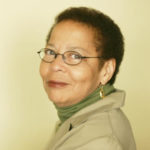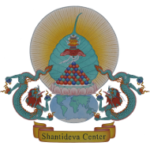Enlightened Beings: Life Stories from the Ganden Oral Tradition
with Prof. Jan Willis
We generally refer to the Buddha, Siddhartha Gautama, as being the “Awakened One” or the “Enlightened One,” but what does “enlightenment” here mean? Are there more “Enlightened Beings” than we think, and are there different examples of such beings? Are there common elements or features in the accounts of their life stories?
In this course, Jan Willis will explore the ideas of “enlightenment,” of rNam thar (or “liberation life story”), and the life stories of the first six enlightened beings to have gained liberation through a new practice tradition crafted by Tsonkhapa, founder of the Gelukpa, or Ganden, school of Tibetan Buddhism.
About the Teacher

Jan Willis, Ph.D. is an author, activist, scholar, professor, and long-time Buddhist practitioner. TIME magazine named her as one of six “spiritual innovators for the new millenium”, and Ebony called her one of its “Power 150” most influential African-Americans.
Dr. Willis is Professor Emerita of Religion at Wesleyan University and now Visiting Professor of Religion at Agnes Scott College in Decatur, GA. She received her B.A. and M.A. in Philosophy from Cornell University, and her Ph.D. in Indic and Buddhist Studies from Columbia University. She is the author of The Diamond Light: An Introduction to Tibetan Buddhist Meditation (1972), On Knowing Reality: The Tattvartha Chapter of Asanga’s Bodhisattvabhumi (1979), Enlightened Beings: Life Stories from the Ganden Oral Tradition (1995); and the editor of Feminine Ground: Essays on Women and Tibet (1989).
Additionally, she has published numerous articles and essays on various topics in Buddhism—Buddhist meditation, hagiography, women and Buddhism, and Buddhism and race. Her best-known work is her personal memoir, Dreaming Me: Black, Baptist, and Buddhist—One Woman’s Spiritual Journey.
Dr. Willis is one of Lama Yeshe’s earliest Western disciples and sees him as one of her root spiritual mentors. She grew up in the Jim Crow South of 1950s and 1960s and took part in the Civil Rights movement. While traveling through Asia in the early 1970s, she met Lama Yeshe and discovered a path to healing the wounds of racism: “[Buddhism] has helped me in real ways to find what I was looking for as a young person in a world that was violent,” she explained. “It showed me how to locate deep wounds that racism caused in my early life … and having found them, how to heal them.”


